Search

Helping a Child Who Is Overweight
Children naturally gain weight as they grow and develop. Some kids may gain extra pounds, but lose them as they develop and grow taller. For others, gaining too much weight may lead to obesity. Children with obesity are more likely to have obesity as adults. Over time, excess weight may lead to health problems like heart disease, joint pain, or type 2 diabetes. Genes and family history can affect…
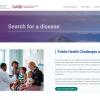
Genetic and Rare Diseases Information Center
Scientists have discovered more than 10,000 rare diseases. These include cancers, blood diseases, and genetic diseases passed from parent to child. This website has easy-to-understand information about rare diseases. Get help with information in English or Spanish by calling 1-888-205-2311 or submitting a request on the website.

Halting Hypothermia
The frosty air of winter can be invigorating. But cold air can also pose threats to your health, whether you’re indoors or outside. If your body temperature drops too low, it can lead to a serious, sometimes deadly condition known as hypothermia. Learn to recognize the signs of this condition, and take steps to keep yourself and your family warm and safe during this chilly season. A normal body…
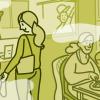
Clearing the Air
Nobody likes being sick with a virus. It can feel even worse if you get your loved ones sick, too. But you can keep your family healthier by learning ways to prevent viruses from spreading. Some viruses, like other germs, can live on surfaces. You become infected when you touch them and then touch your eyes, nose, or mouth. But many viruses can spread through the air. These are called airborne…, A Sea of Aerosols, Every time you talk, sneeze, sing, or cough, you breathe out more than just air. You also exhale lots of tiny fluid particles. These come in a wide range of sizes. The larger ones, called droplets, fall quickly to the ground. These typically travel less than 3 to 6 feet. But the smallest particles, called aerosols, can hang in the air for minutes or even hours. They are able to travel through the…, Spreading Indoors and Out, How much virus is floating around in the air depends on where you are. Indoor spaces tend to be poorly ventilated compared to the outdoors. Outdoors, aerosols can float off or blow away. In a building with poor ventilation, there’s nowhere for the aerosols to go. When aerosols collect in the air, you’re more likely to breathe them in and get infected. That’s why many outbreaks of COVID-19 were…, Preventing Infection, With all these viruses floating in the air, what are the best ways to stay healthy? “A lot of the lessons we learned from the COVID-19 pandemic are tools that we can apply every day,” Lakdawala says. Getting CDC-recommended vaccines can help your body fight off germs. Maintaining a healthy lifestyle can also help keep you from getting ill. That includes a healthy diet and enough physical activity…, [qtip:ultraviolet light|A type of energy that comes from the sun and artificial light sources like sun lamps and tanning beds.]., Dr. Peggy Sue Lai, a lung doctor at Massachusetts General Hospital, is studying how to improve indoor air quality in schools. “We have detected multiple respiratory viruses in the air of classrooms,” she explains. If school buildings aren’t well-ventilated, these viruses can build up. But upgrading a building’s heating, ventilation, and air conditioning (HVAC) system to improve ventilation can…

The Hazards of Hypothermia
Winter brings many opportunities for cold-weather fun. But it can also bring dangerous temperatures. As you venture outdoors this season, take care to keep yourself safe from cold-weather hazards like hypothermia. “Hypothermia is when the body’s core temperature decreases below 95 degrees Fahrenheit,” says Dr. Basil Eldadah, an NIH aging expert. Hypothermia can happen when you’re exposed to very…

App Aids Autism Screening
Autism spectrum disorder (ASD) affects how a person behaves, communicates, interacts with others, and learns. It’s called a “spectrum disorder” because symptoms can vary widely. Early diagnosis can lead to early treatment and improved outcomes. But ASD can be hard to diagnose. Kids are often screened for ASD before age 3 at well-child medical visits. Screening is usually based on a caregiver…
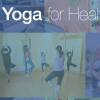
Yoga for Health: A New e-Book
A growing number of Americans are rolling out their mats and engaging in the ancient practice of yoga. Yoga has spiritual origins. But in recent years, it has become a popular way to improve physical health and mental well-being. Have you considered trying yoga? How can you know if it’s right for you? To help you find answers, NIH has created a new 40-page e-book called “Yoga for Health.” This…
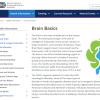
Brain Basics
The brain is the most complex part of the human body. It works quickly and automatically when it’s healthy, but problems can be devastating. This web page can help you learn more about how the brain works and its role in human health. Read about stroke, sleep, genes, and other factors that can affect the brain.
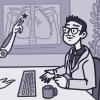
Artificial Intelligence and Your Health
There’s a lot of talk about artificial intelligence, or AI, these days. AI is everywhere—from virtual assistants to facial recognition software. The technology is even assisting doctors and scientists. So what exactly is AI? And how is it helping advance scientific research? “AI is basically trying to teach computers to ‘think’ in the same way as the human brain,” says Dr. Despina Kontos, an AI…, Mining Medical Images, One area that AI is already being used daily is medical imaging. Computers help doctors comb through CT and MRI scans for signs of problems like heart disease and cancer. “AI can look at images very closely, in a way that’s much more detailed than we can do with the human eye,” Kontos says. That means that the computer may be able to pick up on subtleties that a person might miss. In medicine,…, Connecting People With Care, Over the last year, advanced “chatbots,” like ChatGPT, have burst on the scene. These AI programs are designed to have realistic conversations with people. People are starting to use the technology to find health information. Many chatbots are a form of “generative AI.” This type of AI can create new content based on what it learns from analyzing existing data. Such chatbots use what’s called…, Looking Toward the Future, As AI moves into more areas of health care, many ethical issues will need to be addressed, explains Kontos. “These systems learn from human data, so they may learn our biases,” she says. For example, in the past, research studies have included far more men than women. This means that the resulting data may not be as accurate for guiding women’s health care. So, if this information is fed into AI…

Spit Happens
Do you have a favorite food that makes your mouth water? The liquid that fills your mouth is called saliva. This remarkable fluid helps you digest food and stay healthy. Saliva, or spit, has many important roles. It helps to moisten food, which affects its flavor and makes it easier to swallow. It contains proteins that help to break down food and begin the digestion process. Saliva also includes…
NIH Office of Communications and Public Liaison
Health and Science Publications Branch
Building 31, Room 5B52
Bethesda, MD 20892-2094
Contact Us:
nihnewsinhealth@od.nih.gov
Phone: 301-451-8224
Share Our Materials: Reprint our articles and illustrations in your own publication. Our material is not copyrighted. Please acknowledge NIH News in Health as the source and send us a copy.
For more consumer health news and information, visit health.nih.gov.
For wellness toolkits, visit www.nih.gov/wellnesstoolkits.
